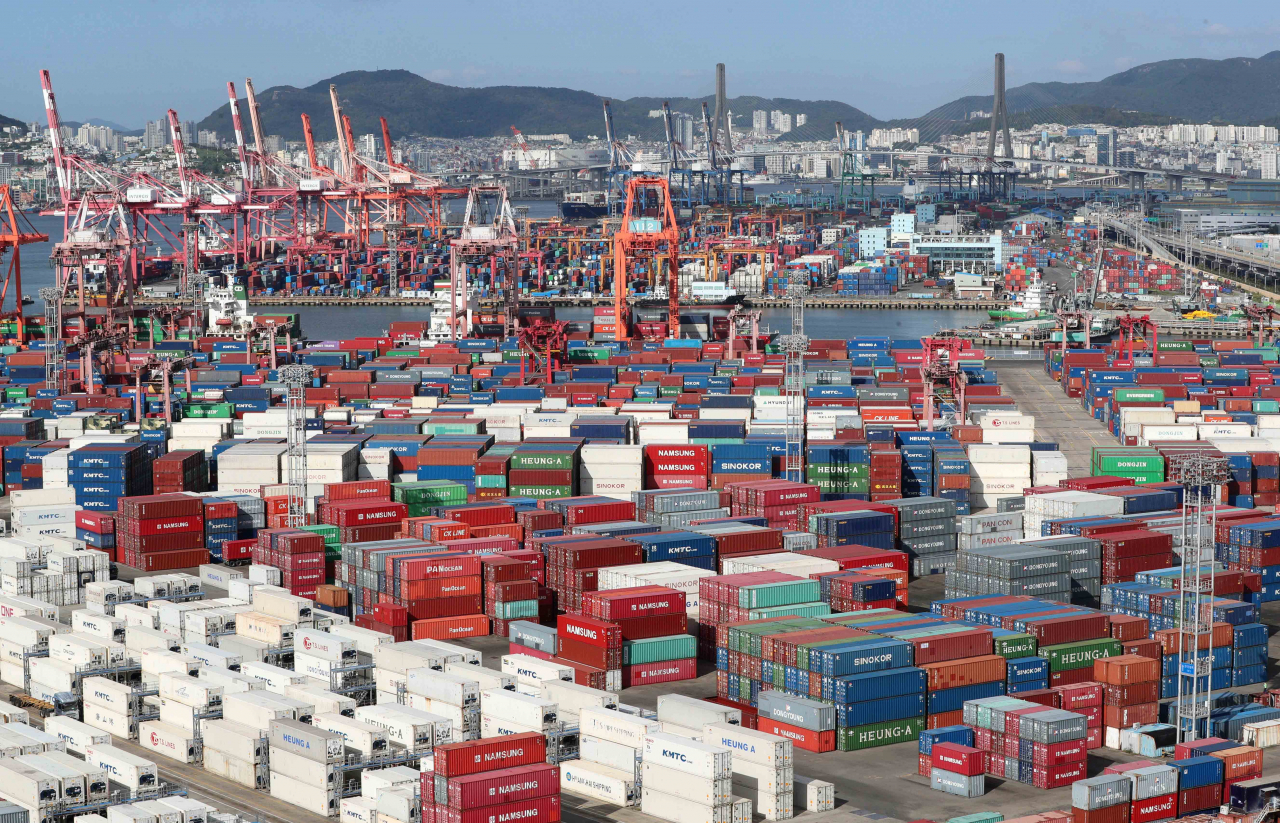S. Korea becomes EU’s 7th-largest source of imports: KITA
Secondary battery materials, automobiles and biopharmaceuticals lead increase
By Im Eun-byelPublished : Sept. 14, 2023 - 15:50

South Korea has risen to become the European Union's seventh-largest source of imports in the first four months of this year, eclipsing Japan and Russia for the first time, according to the Korea International Trade Association on Thursday.
The value of the EU's imports from Korea climbed 10.7 percent on-year from January to April while the European trade bloc’s total imports dropped 8.6 percent during the same period, a report released by KITA showed.
Its imports from Korea in the period stood at $26.4 billion, the seventh-largest amount among the total. Excluding four countries in the European region with higher exports to the EU -- the UK, Switzerland, Turkey and Norway -- Korea came in third among non-European countries after China and the United States.
The $26.4 billion figure exceeded the size of the EU's inbound shipments from Japan and Russia, which stood at $26.2 billion and $21.1 billion, respectively. It was the first time for the EU's imports from Korea to surpass that of the two countries, the KITA said.
Figures show Korea's exports to the EU increased by 3.5 percent from January to July, even when its total exports dipped by 13 percent, compared to the same period of the year before.
In the first six months of this year, the EU saw an increase in its imports of secondary battery materials from Korea. Imports of cathode materials climbed by 107 percent, while those of graphite and electrolytes increased by 190 percent.
As the EU is working to build a self-reliant battery ecosystem, Korea's EU-bound exports of finished products and parts decreased in the period. However, Korea’s exports of battery materials to Poland and Hungary increased, as Korea’s top three battery makers -- LG Energy Solution, Samsung SDI and SK Innovation -- run battery plants in the two Eastern European countries.
With the EU still heavily dependent on imports for battery materials, it will continue to import cathode materials, anode materials, electrolytes and separation membranes, the KITA explained.
South Korea’s car exports to Europe also soared from January to July. Exports of electric vehicles to Germany and France increased by 143.8 percent and 125.7 percent, respectively, while the exports of automobile parts climbed in Germany, the Czech Republic and Slovakia. Korea’s top automaker Hyundai Motor and its sister company Kia each operate plants in Czech and Slovakia.
For the biopharmaceutical industry, Korea's exports to the EU of both active pharmaceutical ingredients and finished products increased in Hungary, Belgium, the Netherlands and Italy.
The EU’s secondary battery, automobile and bio industries will continue to grow at a fast pace, enabling an expansion of exports for Korean businesses, the KITA said.
As the EU will limit sales of cars to low-emission models starting in 2035 through its “Fit for 55” legislative package, its EV and lithium battery industries are projected to grow 16.5 percent and 30 percent annually over the next five years.
The KITA further projected the EU's bio industry to grow by 24.1 percent every year until 2028 as the demand for pharmaceuticals increase due to the aging society and relaxed regulations on biosimilars.
“It is important to dominate the market in advance by improving the production environment, while responding to the new trade rules of the EU,” researcher Kim Na-yul from the KITA said.
The EU's trade structure has been transitioning based on non-economic factors such as the environment, human rights and supply chain stability, the KITA pointed out.
“Strengthening the competitiveness of our exports by diversifying the export products and utilizing the preferential tariff treatment from the Korea-EU free trade agreement is necessary," Kim said.







![[KH Explains] No more 'Michael' at Kakao Games](http://res.heraldm.com/phpwas/restmb_idxmake.php?idx=644&simg=/content/image/2024/04/28/20240428050183_0.jpg&u=20240428180321)

![[Weekender] How DDP emerged as an icon of Seoul](http://res.heraldm.com/phpwas/restmb_idxmake.php?idx=644&simg=/content/image/2024/04/25/20240425050915_0.jpg&u=)








![[Herald Interview] Mistakes turn into blessings in street performance, director says](http://res.heraldm.com/phpwas/restmb_idxmake.php?idx=652&simg=/content/image/2024/04/28/20240428050150_0.jpg&u=20240428174656)
